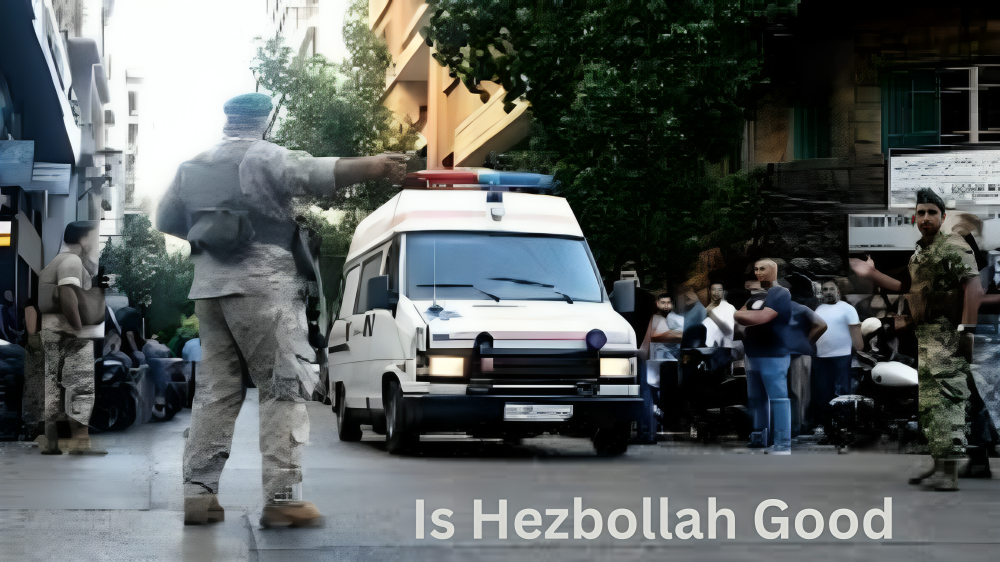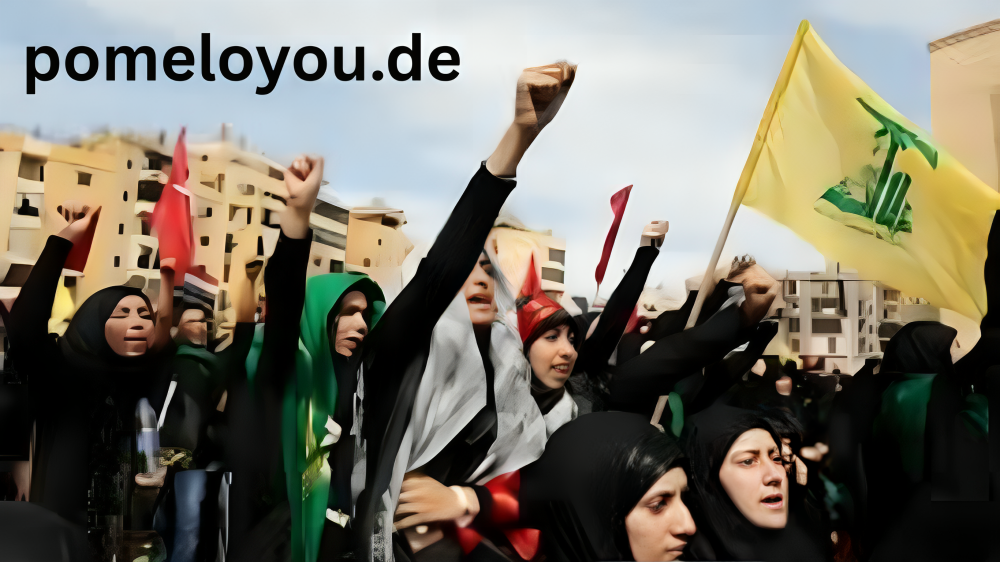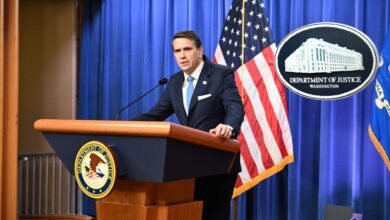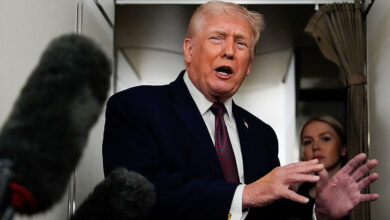
Is Hezbollah Good A Balanced Look at a Complex Force in the Middle East
When folks ask, is Hezbollah good it’s like opening a can of worms in the heart of the Middle East. You know, that region where history twists and turns faster than a mountain road in Lebanon. Founded amid chaos and invasion, this group has become a powerhouse—part resistance fighters, part political players, and yeah, part of the storm that’s battered the area for decades. But here’s the optimistic spin: understanding Hezbollah isn’t just about picking sides; it’s about spotting paths to peace, where dialogue might one day turn swords into plowshares. As someone who’s dug deep into Middle Eastern affairs, I’ve seen how groups like this shape lives, for better and worse. Let’s unpack it all, shall we? We’ll explore the roots, the wins, the pitfalls, and maybe even a brighter tomorrow.
The Roots of Hezbollah: Born from Invasion and Hope
Picture this: It’s 1982, and Israeli tanks are rumbling into Lebanon, sparking the Lebanese Civil War’s ugliest chapter. Amid the rubble and fear, a bunch of Shia clerics, inspired by Iran’s fresh revolution, band together. They call themselves Hezbollah—Party of God—and vow to kick out the invaders. Iran steps in with cash, training, and that revolutionary zeal, turning these locals into a force to reckon with. Fast forward, and their 1985 manifesto lays it out: expel Western meddlers, smash Israel, and build an Islamic vibe under Iran’s watchful eye.
Now, don’t get me wrong—those early days were gritty. Hezbollah started as ragtag guerrillas, but they grew roots in Lebanon’s Shia south, where folks had long felt sidelined. It’s kinda like that underdog story we all root for, right? They dug in, literally, with tunnels and hideouts, defending their turf. And hey, by 2000, Israel pulls out of southern Lebanon after 18 years of occupation. Credit where it’s due: Hezbollah’s relentless hits played a big role in that withdrawal. For many Lebanese, that was a win, a spark of pride in a country scarred by civil strife. Optimistically speaking, it showed what determination can do—push back against odds and reclaim your land. But as we’ll see, those roots also tangled with bigger ambitions, ones that echo Iran’s shadow across the region.
Hezbollah’s Rise as a Political Powerhouse in Lebanon
Lebanon’s a mosaic, you see—Christians, Sunnis, Shiites, Druze, all stitched into a quirky power-sharing system. Hezbollah didn’t just fight; they got savvy. By the 1990s, they were “Lebanonizing,” ditching dreams of an Iran-style theocracy for seats in parliament. Today, their Loyalty to the Resistance Bloc holds about 13 spots in the 128-seat chamber, allying with Christians and others to sway cabinets. It’s impressive, really—turning battlefield grit into ballot-box clout.
Take the 2018 elections: Hezbollah and pals snagged a majority, proving they’re no fly-by-night outfit. They’ve pushed for stuff like better infrastructure in Shia areas, where poverty bites hard. And in a country where the government’s often gridlocked, they’ve filled gaps—think hospitals and schools that keep communities afloat. Polls back this up: In places like Gaza or Jordan, views of Hezbollah run high, with over 60% seeing them as legit resisters. Heck, even Egypt’s ambassador once called their defense of Lebanese soil “legal and legitimate.”
Yet, here’s the rub—and we’ll dive deeper later—their power’s a double-edged sword. Allies praise the stability they bring to shaky coalitions, but critics whisper of veto power over national decisions. Still, optimists like me see potential: If Hezbollah leans harder into politics, it could bridge divides in Lebanon’s fractious setup. Imagine that—a group evolving from militants to mediators. Wouldn’t that be something?
Military Might: Hezbollah’s Arsenal and Battlefield Prowess
Alright, let’s talk brass tacks—or should I say, rockets and rifles? Hezbollah’s no lightweight; they’re dubbed the world’s top non-state army, packing 40,000 to 120,000 rockets, anti-tank missiles, even drones. A U.S. official once grumbled, “Hezbollah is pretty damn good,” thanks to their tactical smarts—camouflage wizards, quick strikes, and that cellular structure keeping things sneaky.

Their big flex? The 2006 war with Israel. Yeah, it wrecked Lebanon—over 1,000 dead, a million displaced—but Hezbollah claimed victory by surviving the blitz. They fired thousands of Katyushas, held ground in the south, and forced a UN ceasefire. For fans, it’s proof they can stand toe-to-toe with a superpower. And in Syria? They helped Assad hold Aleppo, honing urban warfare skills that made them sharper, battle-tested.
| Hezbollah’s Key Military Milestones | Description | Impact |
|---|---|---|
| 1982 Formation | Trained by Iran’s IRGC amid Israeli invasion | Unified Shia factions into a cohesive force |
| 2000 Israeli Withdrawal | Guerrilla ops pressured end to 18-year occupation | Boosted regional prestige as “resistance” icon |
| 2006 Lebanon War | Survived 34-day Israeli offensive | Seen as “divine victory” by supporters |
| Syria Intervention (2012-2018) | Led battles like Qusayr; heavy casualties but gains | Enhanced tactics, but strained resources |
| 2023-2025 Border Clashes | Rocket fire in solidarity with Hamas | Displaced thousands, but showcased arsenal depth |
Optimism alert: This firepower, if redirected to defense only, could secure borders without dragging neighbors into the fray. But as recent Israeli strikes show—killing leaders like Nasrallah—it’s a high-stakes game. Hezbollah’s weakened now, per reports, yet their resilience hints at untapped potential for de-escalation.
Social Services: Hezbollah’s Heart for the Community
Hezbollah isn’t all guns and glory; they’ve got a soft side that’s won hearts. In Lebanon’s underbelly—think bombed-out villages—they run clinics, schools, even water projects. Al-Manar TV beams out news and aid appeals, while their network feeds thousands during crises. During the 2006 war’s aftermath, they rebuilt homes faster than the government could blink.
- Healthcare Heroes: Free hospitals in the south treat folks who’d otherwise trek hours for care. In a country where public services limp, this fills a void.
- Education Edge: Scholarships and schools emphasize tech and faith, lifting Shia kids from poverty’s grip.
- Welfare Wins: During COVID, they distributed masks and meals, outpacing sluggish state efforts.
Critics call it a “state within a state,” buying loyalty. Fair point, but hey, in tough times, beggars can’t be choosers. Optimistically, this goodwill could evolve into national programs, knitting Lebanon tighter. Imagine if that community spirit scaled up—Hezbollah leading inclusive aid, not just for their base.
Ties to Iran: A Partnership That’s Both Boon and Burden
Iran’s the big brother here, pumping in $700 million yearly for arms and ops. It’s Velayat-e-Faqih ideology—rule by the supreme cleric—that glues them, with Hezbollah as Tehran’s “Axis of Resistance” spearhead. Pros? Shared tech boosts their edge; joint ops in Syria solidified alliances.
But burdens? Lebanon’s stuck in Iran’s proxy wars, from Yemen to Iraq. Recent clashes show the strain—Iran’s hesitance left Hezbollah hanging, per some insiders. On X, voices echo this: “Hezbollah’s hands tied by Iran,” one user laments. Yet, silver lining: As Iran weakens, Hezbollah might pivot toward local roots, fostering homegrown stability. Fingers crossed, eh?
Criticisms and Controversies: The Dark Side of the Equation
Oof, now we’re wading into choppy waters. Hezbollah’s rap sheet’s long: Labeled terrorists by the U.S., EU, and more for bombings like 1983 Beirut (241 U.S. dead) and Argentina’s AMIA (85 killed). They’ve backed Assad’s atrocities in Syria, starving Madaya’s civilians. In Lebanon? Accused of Hariri’s 2005 assassination, sparking protests.
On X, Lebanese users vent: “80% against them,” one says, citing corruption and drug rings. They drag Lebanon into wars, flout UN Resolution 1701 by arming up south of the Litani. And that “state within a state”? It vetoes reforms, hoards power.
- Terror Ties: Global plots, from Bulgaria buses to Cyprus cells.
- Sectarian Strain: Clashes with Sunnis, Christians; 2008 Beirut takeover chilled spines.
- Economic Drag: Smuggling and laundering fuel black markets, not growth.
Harsh stuff, no doubt. But even here, optimism peeks: Post-2024 strikes, with leaders gone and arsenal gutted, reform whispers grow. Could this be the nudge toward disarmament?
Global Views: From Heroes to Villains in the World Arena
Globally, Hezbollah’s a Rorschach test. In the Arab street? Heroes for ’06’s stand. Russia calls ’em legit; China chats neutrally. But West? Pure terror tag, with sanctions biting finances.
On X, it’s split: Pro-Palestine voices hail ’em as allies; Lebanese cry foul over meddling. Reddit threads debate: “Good for resistance, bad for Lebanon.” Brookings notes their anti-U.S. bark softens amid Sunni threats.
The bright side? Shifting sands—like Assad’s fall—could isolate ’em, pushing diplomacy. Global pressure might finally tip toward talks.
The Impact on Lebanon: Stability or Stagnation?
Lebanon’s economy’s in the tank—hyperinflation, blackouts—and Hezbollah’s finger’s often on the pulse. They block probes into the 2020 Beirut blast, hoard ports for smuggling. Protests rage: “All means all!” against their grip.
Yet, in the south, they’re the de facto shield, deterring invasions. X users from there defend: “They protected us when the army couldn’t.” Post-2024 war, with a million displaced, their aid convoys shine.
Table of Lebanon’s Dual Realities Under Hezbollah Influence:
| Aspect | Positive Contributions | Negative Consequences |
|---|---|---|
| Security | Deterred Israeli incursions post-2000 | Sparked 2006 war; ongoing border fire |
| Economy | Social welfare nets in Shia areas | Corruption, smuggling drain resources |
| Politics | Coalition stability, parliamentary voice | Veto power stalls reforms |
| Society | Community services fill state gaps | Sectarian tensions, protests |
Bottom line: They’ve stabilized some corners but stalled the whole. Optimism? A disarmed Hezbollah could turbocharge recovery.
Hezbollah and the Palestinian Cause: Solidarity or Strategy?
Hezbollah’s all-in on Palestine, training Hamas and firing rockets since Oct. 7, 2023. Nasrallah called Israel “illegitimate,” vowing its end. For supporters, it’s pure solidarity—shared resistance against occupation.
But strategy shines through: It’s Iran’s playbook, linking fronts from Gaza to Lebanon. Clashes displaced 60,000 Israelis, but at what cost? Lebanon’s north empties too.
The hopeful note: If ceasefires hold, like Nov. 2024’s, this could channel into joint peace pushes. Allies turning advocates? Now that’s progress.
Is Hezbollah Good Weighing the Scales with Fresh Eyes
So, circling back to our big question—is Hezbollah good It’s nuanced, folks. They’ve liberated land, built communities, and flexed muscle against giants, earning cheers from the oppressed. But the terror tags, proxy wars, and Lebanon’s woes paint a grim picture. Recent hits—leadership decimated, arsenal halved—signal change. On X, debates rage: “Resistance heroes” vs. “Iran’s puppets.”
As an expert peering through the fog, I’d say they’re a product of pain, with glimmers of good amid the grit. The real win? Learning from it all to forge peace. If Hezbollah sheds arms for alliances, Lebanon’s future brightens. Hang in there—better days aren’t just possible; they’re probable.
Fazit: Toward a Hopeful Horizon
In wrapping up, is Hezbollah good boils down to perspective, but the evidence leans toward a force that’s empowered some while ensnaring many. Their resistance legacy inspires, yet the shadows of violence loom large. Optimistically, with Iran’s grip loosening and global eyes watching, transformation beckons. Disarm, democratize, and deliver for all Lebanese—that’s the path to true good. Let’s root for it, because in the Middle East’s tangled tale, every step toward light counts.
faqs
What sparked Hezbollah’s creation in the 1980s?
Hezbollah emerged during Israel’s 1982 invasion of Lebanon, backed by Iran’s Revolutionary Guards to unite Shia militants against the occupation. It was a grassroots response to feeling cornered, blending faith and fight.
How does Hezbollah fund its operations?
Mostly through Iran—up to $700 million annually—plus diaspora donations, businesses, and shady stuff like smuggling. It’s a mix that keeps the wheels turning, for better or worse.
Why is Hezbollah labeled a terrorist group by the West?
For attacks like the 1983 Beirut barracks bombing and global plots, seen as threats to civilians and stability. They view it as resistance; others, pure terror.
Has Hezbollah ever won a war against Israel?
In 2006, they survived a massive offensive, claiming a “divine victory” that boosted their rep. It wasn’t a knockout, but endurance counted big.
What’s Hezbollah’s role in Lebanon’s government today?
They hold parliamentary seats and sway coalitions, but critics say they undermine the state with vetoes and arms. It’s power with strings attached.
How has the 2024 Israel-Hezbollah conflict changed things?
Israeli strikes gutted leadership and stockpiles, weakening them severely— a turning point, per analysts. Ceasefire talks hint at de-escalation.
Are Hezbollah’s social services a genuine help?
Absolutely—they run vital clinics and schools in needy areas, stepping up where the government falters. But some see it as loyalty bait.
What’s the link between Hezbollah and the Palestinian fight?
They support Hamas with training and border fire, framing it as anti-occupation solidarity. It’s heartfelt for some, strategic for others.
Can Hezbollah ever fully disarm?
Tough nut—UN resolutions demand it, but they tie arms to “resistance.” Recent losses might force a rethink.
What’s the optimistic future for Hezbollah and Lebanon?
Evolving into a political player sans militancy, aiding national healing post-crises. Peaceful integration could make ’em a force for good



